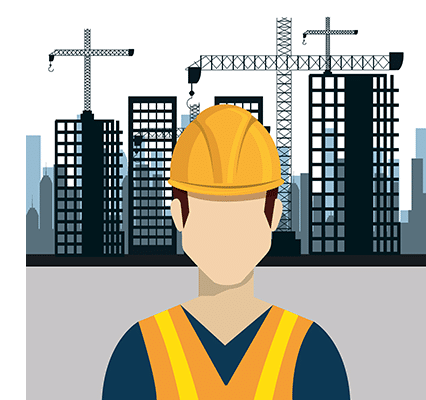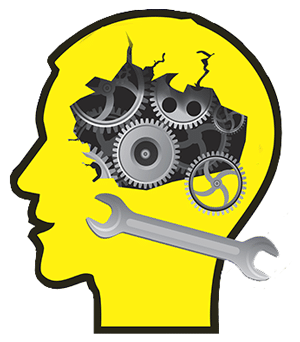Mental Health and the Construction Industry
Jan 12, 2018

With mental health issues accounting for around one fifth of work related illness in the trade, there is still a lot to be done to ensure the wellbeing of the workforce. When mental health becomes jeopardised, it can have damaging effects on multiple aspects of the individuals’ lives, as well as the industry as a whole.
Mental health is ‘a state of wellbeing in which the individual realises their own abilities, can cope with the normal stresses of life, can work productively and fruitfully, and are able to make a contribution to their community.’ – World Health Organisation (Source: CCS, Spotlight On Mental Health)
Around 206,000 people in the UK have now been trained in mental health first aid, giving them the ability to recognise symptoms and offer the right assistance.
In light of recent headlines and publicity on mental health in the construction industry, more is being done to raise awareness and drive change, with many construction companies investing in mental health training.
In any industry, the workforce is the most valuable asset, making it essential to ensure the wellbeing of these individuals. In order to ensure a strong and stable future for the construction industry, it’s vital we invest in the health and wellbeing of our employees and colleagues.

Who is affected?

A report recently found that more women than men in the construction industry experience mental health problems, with ‘43 per cent of women [experiencing] reduced productivity, compared with 38 per cent of men’. (Source: Construction News) However this may be influenced by the stigma surrounding men’s mental health. Reports have shown that women are far more likely than men to open up about mental health, which may mean that there are actually far more men experiencing mental health issues than currently understood.
Mental health affects more than just the individual; we’re all connected to a network in one way or another. Relatives and friends are often affected, as well as employers: “Mental health issues account for people taking almost 70 million days off sick per year – the most of any health condition – costing the UK economy between £70 billion and £100 billion a year.” (Source: Davies SC. Annual Report of the Chief Medical Officer 2013, Public Mental Health Priorities: Investing in the Evidence. Department of Health. 2014, p.158)
What are the effects?
Our mental health effects every day decisions, which means that when people experience a decline in their mental health, they are highly likely to also experience a decline in other aspects of their lifestyle.
Some of the most noticeable effects including the following:
- Lack of motivation
- Poor work performance: productivity, timekeeping, decision making etc.
- Increased absence from work
- Financial strains (as a result of absence)
- Strain on relationships
- Poor physical health: high blood pressure, increased risk of heart attack, hair loss etc.
- Increased use of tobacco, alcohol and sometimes drugs
- Struggle with day-to-day life
What’s the cause?
The most common mental illnesses in the construction industry are Anxiety, Depression, Eating Disorders and Addiction. Stress is both a cause and result of these illnesses; identifying what’s causing stress in the first instance can be helpful in finding a solution.
‘The stress and demands to meet project deadlines and the risks involved in completing jobs quickly, increase the likelihood of mental health issues.’ (Source: Considerate Constructors Scheme)
What needs to be done?
One of the most notable developments is the launch of Mates in Mind, a charity established in September 2016 by the Health in Construction Leadership Group (HCLG) with the support of the British Safety Council. The charity was set-up to help raise awareness and understanding, offer support and encourage people to feel confident enough to open up and find support when they need it.
“In the first year, we intend to engage with 100,000 workers in the industry. We want people in the industry to know it exists and that there are individuals who can provide support and direction for those that are suffering from mental ill health.” – Steve Hails, Chair of the Mates in Mind Board
What can you do?
Whether you are an employer, construction worker, relative or friend, there is always something you can do to help make a difference.
The two most important steps you can take are to recognise and react.
Often when someone is suffering with mental health, they either don’t know that they are suffering/need help, or are reluctant to open-up and seek the support they need. This is when it can be really valuable to be able to recognise symptoms and signs. If you can identify when someone if struggling, you can then help them take the next step to recovery (react).

- Isolation – Reduced interest in socialising
- Increased absence
- Poor productivity and presentation
- Increased sensitivity and erratic mood
- Lack of confidence
- Indecisive
- Significant change in characteristics
- Change in diet
Once you recognise that someone you know might be experiencing mental health problems, there are a number of steps you can take.
Having someone to talk to can make a great difference, which is why it’s so important that everyone is encouraged to be more open about their mental health.
There are lots of resources available, designed to help you better understand mental health and help those suffering.





